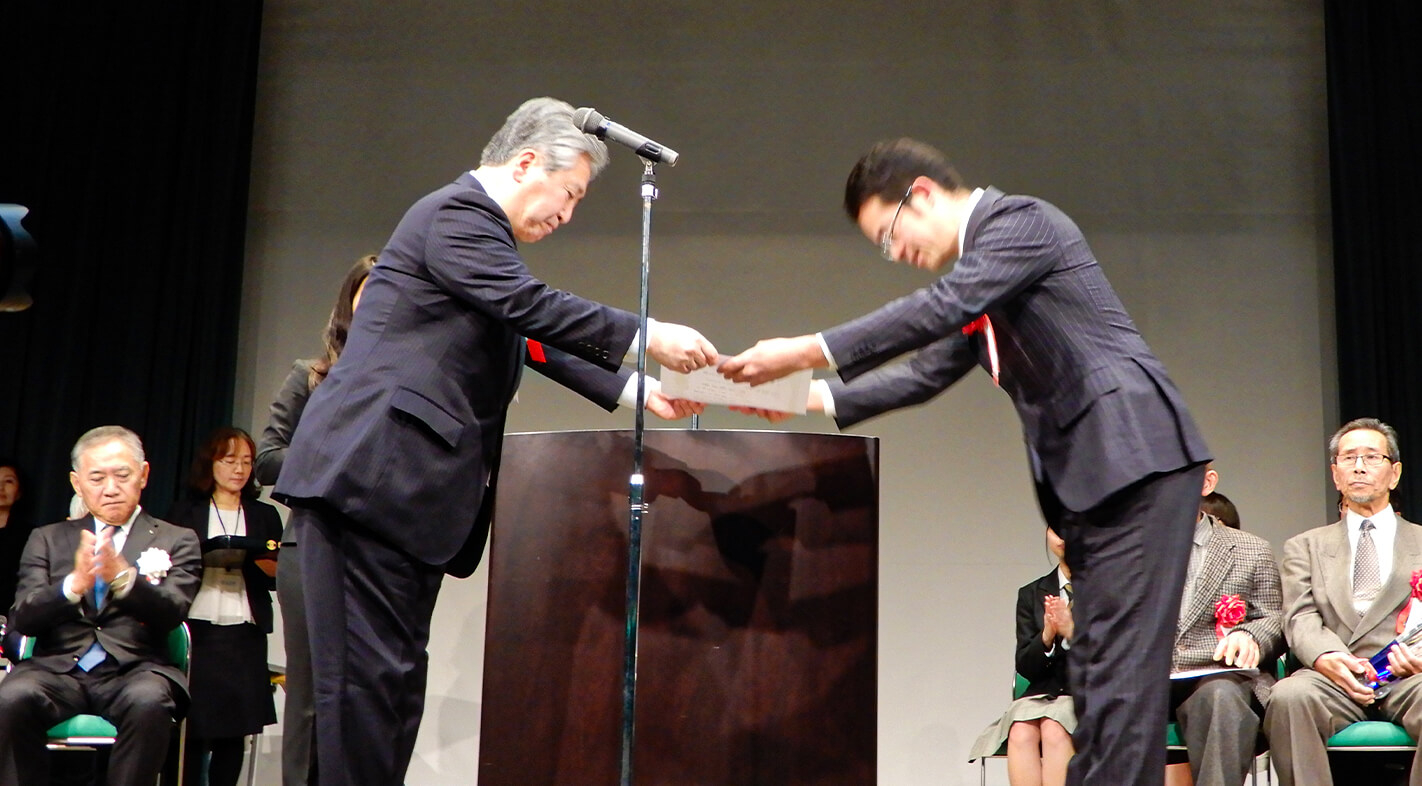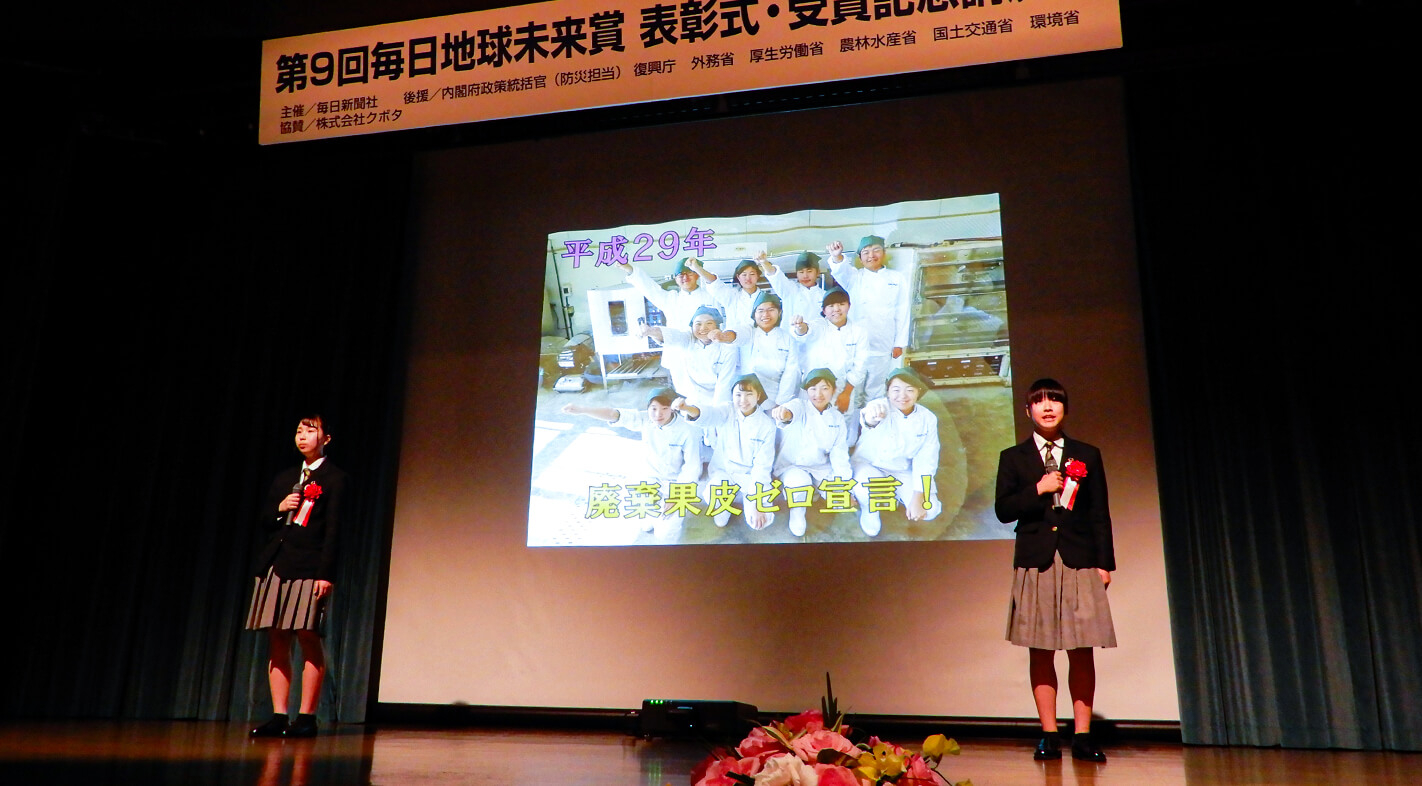Co-sponsoring the Kubota Mainichi Earth Future Prize

- Local Communities
Supporting Grassroots Activities to Resolve Issues in the Fields of Food, Water, and the Environment
Kubota has been co-sponsoring non-profit organizations (NPOs) and non-governmental organizations (NGOs) since the Kubota Mainichi International Exchange Prize, which preceded the Mainichi Earth Future Prize, was established. Kubota has for many years continued to support those working to resolve problems in the fields of food, water, and the environment, which are indispensable to the realization of a sustainable society.
As Kubota continues to tackle the challenge of resolving issues in the fields of food, water, and the environment, which are closely related to our lives, the company believes that as acceptance is earned from local residents, it is important to work hand in hand along with them.
The Kubota Mainichi Earth Future Prize, which Kubota has co-sponsored since its predecessor, the Mainichi International Exchange Prize, was established in 1989, is a project to honor, commend and support the achievements of organizations and individuals working to resolve problems in Kubota’s three areas of focus.
Prizes are presented to organizations and individuals whose activities in the fields of food, water, and the environment are aligned with the SDGs (Sustainable Development Goals), and who are engaged in reconstruction activities for victims of natural disasters such as earthquakes and torrential rains. Selection for the four prizes, which consist of the Mainichi Earth Future Prize, which is the grand prize, the Kubota Prize, the SDGs Future Prize, and the Honorable Mention Prize, is based on criteria such as activity records, the robustness and breadth of the activity, and enthusiasm.
Former prize winners include an activity that supports the self-reliance of minority hill tribes in Thailand who are living in hardship, and an activity that planted 17,000 cherry trees in the city of Rikuzentakata in Iwate Prefecture, marking the line where the tsunami reached furthest inland, to serve as a memorial of the Great East Japan Earthquake for future generations. We have been supporting diverse grassroots activities and disaster recovery efforts in Japan and overseas.
Resolving the issues facing the fields of food, water, and the environment require long-term effort. In order that we may also pass a beautiful planet over to our children, the bearers of our future, we will continue to support those working to resolve social issues in manners rooted in the community.
